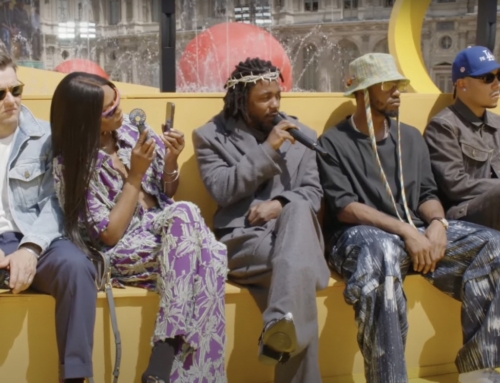Early in July, Music Business Worldwide published an article in which Spotify denied having any activity behind alleged “fake artists” on its platform. The article followed their report from August 31, 2016, which listed 50 of these supposed artists, bringing the story back into the spotlight.
Spotify maintains that they haven’t done anything wrong. Many artists, fans, and media are crying foul. When the story broke last summer, it immediately caused quite an uproar in music forums and sparked a series of media-backed and self-sponsored investigations of performance rights organization catalogues. They were trying to find out a) whether or not these artists are fake, as accused, and b) if they are fake, who the hell is writing these tracks that are generating thousands, even millions, of plays on Spotify.
From a reporter’s standpoint, this story is solid gold. It’s like the music world’s answer to American politics. All this accusing and denying. Thousands of music fans thinking they know all the answers and condemning all that don’t agree as ignorant and stupid.
Music Business Worldwide has since published a number of articles tied in some way to this saga, and around the internet the public interest generated enough chatter that The Guardian and the New York Times chimed in.
The story, in short, is that MBW accused Spotify of paying artists to produce basic, appealing instrumental tracks that could generate high play counts. They were geared toward playlists meant as background noise for other activities. The artists, whoever they are, have little to no presence anywhere except Spotify – no social media, no websites, a couple of sketchy magazine interviews that easily could have been staged.
Spotify’s angle, according to what is perceived from the reports, is to cut royalty requirements. If these tracks were commissioned by Spotify, we must presume the artists aren’t receiving standard royalties. Spotify has a long history of battling the industry when it comes to royalty payments, and this is perhaps more in line with what Spotify prefers in its contracts instead of those of the performance rights organizations, record labels, or artists.
There definitely seems to be something fishy going on. How are these tracks so perfectly composed and listed that they appear on so many playlists when no one is searching for them? Is the desire for instrumental piano ballads written by no-name artists with no social media presence rising as the newest trend in digital music?
If this story is true, Spotify found their artistic bait up in the cold expanses of Scandinavia. Sweden, to be exact. MBW uncovered that the BMI listings for many tracks from the supposed ‘fake artists’ list writing credits to two Swedish men: Andreas Romdhande and Josef Svedlund.
We’re nearly a year into this story and, much like the Russia scandal enveloping the White House, we still haven’t moved past the point of accusations and denials. It’s becoming what this world, and particularly corporate enterprise, is best at. Perhaps what we need is a better understanding of Romdhande and Svedlund. Maybe they’ve got a hidden trail of emails with the evil overlords of Spotify that is just waiting for an investigative journalist to dig it up.
But first of all, who the fuck are these guys? Many know them as Quiz & Larossi. The biggest thing to note about this duo is that they’ve actually written some pretty damn good music that has their unhindered stamp on it, including eight (yes, eight!) tracks for Il Divo. This in itself is a hell of accomplishment, but hardly the sum of their efforts. They’ve also written or produced songs for The Pussycat Dolls, Lutricia McNeal, Kelly Clarkson, and many others since their partnership began in 1999. They’ve collaborated with artists across many genre lines, and have even recorded a Christmas album. Their production studio is in Stockholm, the hometown of Spotify and the perfect place for devising mid-winter mischief to please the corporate powers that be.
There were a small group of other Swedish artists on some of the song credits, none of much recognition. In all honesty, all of this is pretty damn hilarious. Independent artists around the world work their asses off at marketing and SEO yet can’t get the plays on Spotify or YouTube to generate enough royalties to buy a Big Mac, but here are artists without a face racking up millions of plays.
Spotify maintains that it is paying royalties for the tracks. Universal Music Group is getting a cut on some of them. Quiz & Larossi have reached #1 in the UK six times throughout their careers. Yet, when Googled, the top results primarily have to do with this Spotify debacle.
Let’s first tackle this from Spotify’s perspective, under the (presumably false) assumption that they creating artists, and commissioning their work for playlists. First of all, it’s their platform. If they want to place a song on a playlist and push that playlist out, who’s going to stop them? Where is the justification to be upset about that?
Additionally, the tracks are getting played. People dig them enough to not skip them over. When I’m doing yoga, I don’t pull out of a soothing Cat Cow flow to check the name of an artist unless the track is absolutely phenomenal, which these tracks are certainly not. For the most part, they are intentionally written to be background music. If Spotify created “fake” artists and bought music from other musicians to be listed under the names of those fake artists, certainly that is to be condemned. If a solution to this story comes forward proving that they did that, it’ll be interesting to see how that plays out within the industry.
Now let’s look at it from Romdhane and Svedlund’s angle. As noted in the PRO catalogues, they are behind much of the music in question. My personal opinion is that Quiz & Larossi are masters of the back-of-house side of the music industry. They’ve done the work to build themselves up as producers and artists. Their resume of collaborations is increasingly impressive. What’s the big deal with them saying yes to a new offer? Even if that offer came from Spotify itself? Earlier I compared, loosely, this story with the Russia/Trump scandal. Here’s where this one differs – this is business, not politics.
Artists need to make a living, just like writers and other creatives. Fresh approaches to mastering online streaming platforms were and are bound to happen, up to and including collusion.
I understand the cries of “It’s not fair to the legitimate artists.” I agree – it’s not. But among the things that I hate about the music industry (and there are several), it’s artists that sit around crying about how badly they’re getting fucked instead of figuring out a way to beat the system and advance themselves.
Whatever unfolds down the line, if anything, the moral of the story is the most Darwin-esque phrase a musician could ever adopt: Do what you gotta do. If that means producing tracks for artists with a bigger fan base, do it. If that means recording instrumental songs for random Spotify playlists built for yoga enthusiasts and meditation, do it. As long as it fits your vision of artistry and business, there are no holds barred in today’s music industry. It’s a dog-eat-dog world, and the clever will survive. Cheers to you, Quiz & Larossi.




